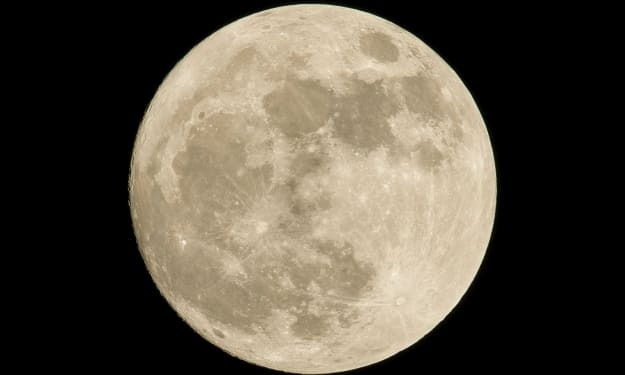How long can humans survive on Earth?
Scientists give four predictions that could lead to the extinction of mankind

Since the Cambrian biological explosion 540 million years ago, all creatures on Earth have been facing a variety of disasters in the process of evolution.
We review the evolutionary history of Earth's creatures. Up to now, life on Earth has experienced five biological extinctions.
Each of these extinctions wiped out nearly 80% of all living things on the planet.
We, humans, were fortunate to be on the stage of the evolutionary history of the Earth after the fifth income extinction about 65 million years ago.
This mass extinction wiped out the dinosaurs from the planet. The next group to rule the Earth was us, humans.
Up to now, humans have been evolving on Earth for nearly a million years or more.
But as we look back at our rate of technological development over the last hundred years, we humans seem to be growing in an exponential explosion of technology. The results of technological development over the past hundred years are equivalent to the sum of technological development thousands of years ago.
So we humans are also trying to use our technology in the fight against nature.
At the same time, we are also reflecting in advance on whether we may face similar catastrophes in the future as the previous biological mass extinctions.
Of course, we look back at the universe any group in the universe will slowly die out with time, and even the stars can not escape the fate of death.
Therefore, according to the current development of human technology and the face of nature's factors, scientists have given four kinds of disasters that may cause the extinction of our species in the future.
First, the first is the asteroid's impact on Earth.
We all know that there are many asteroids in the solar system, and according to astronomers observed the number of asteroids between Jupiter and Mars alone can reach nearly 500,000.
With such a large group of asteroids, if one of them deviates from its orbit due to an impact and comes hurtling towards our planet, it would be a major disaster for our life forms on Earth.
It was about 65 million years ago, during the Cretaceous period. It was the impact of an asteroid with a diameter of 10 km on the Earth that caused the biological mass extinction.
After the asteroid's impact, the ecological environment of the Earth was instantly changed. So it also caused the extinction of more than 80% of all living things on Earth.
So asteroid impact on Earth has always been a topic of concern in the scientific community, but also a major threat to the extinction of our species.
Second, the sun's light changes.
On the surface of the sun and its interior, thermonuclear reactions are occurring all the time, and it is these thermonuclear reactions that allow the sun to release large amounts of heat, after which our planet can flourish.
But we must not think that the energy released by the sun will always be so stable.
What threatens us, what scares us, is not that its energy is slowly declining, but that it will intensify.
Because there is a large amount of hydrogen being converted into helium in the interior of the sun, this means that the density and pressure inside the sun will slowly increase.
This dramatic change in pressure and density also leads to the solar phototransformation effect.
According to astronomers, every billion years, the sun's light intensity will increase by about 10%, which is 10% of the energy that is enough to make all the water on our planet evaporate dry.
Just imagine, that a planet without water is suitable for human habitation.
It is a completely desolate planet. Similar to the current Mars.
So the sun's changes have also been identified by scientists as one of the important factors causing the biological extinction of the Earth.
Third, global warming.
Since mankind entered the industrial revolution, although our technology has developed rapidly, nature has paid a heavy price behind the scenes.
Our atmospheric environment has been gradually destroyed with the development of the industrial revolution.
According to relevant statistics, the earth's annual emissions of gases that can cause the greenhouse effect can be as high as tens of billions of tons.
So this has caused the average temperature of our planet to rise by 0.6°C. One of the most obvious changes is that the Earth's temperature has increased by 0.6°C.
One of the most obvious changes is the melting of the Earth's polar glaciers, if at some point in the future, we humans do not control greenhouse gas emissions, then it is likely to further aggravate the melting of the polar glaciers, making our planet's sea level rise by nearly 100 meters or more.
At that time, we can imagine that most of the land on earth will be swallowed by seawater.
What place is still suitable for human survival?
So global warming is also listed by scientists as one of the major factors endangering the survival of our species. Fourth, the fourth point of nuclear war.
In addition to the external factors we mentioned above, the internal factors that can cause the extinction of our human race, we can not exclude the same.
We humans can also develop to the point of our extinction, one of the most threatening factors is the outbreak of nuclear war.
Since the successful implementation of the Manhattan Project in the United States, mankind has become aware of the threat of nuclear weapons.
A nuclear weapon is a huge amount of energy released after nuclear fission and nuclear fusion.
It is no exaggeration to say that one atomic bomb is enough to destroy a city, and in World War II, as many as 200,000 lives were lost as a result of the explosion of the little boy released by the United States.
And in the aftermath of the explosion of nuclear radiation, we can not ignore the same.
These radioactive elements can cause our skin to ulcerate and even cancerous, and even those who survive will die a painful death in slow torture.
So nuclear weapons are one of the major threat factors to the future direction of human civilization.
Einstein blamed himself so much for his contribution to nuclear weapons that he once said, "I don't know what World War III was like, but I know that in World War IV humans must have been fighting with wooden sticks or stone tools.
Obviously, from his meaning in this paragraph we can understand that in the Third World War, mankind used enough weapons to cause the extinction of mankind and set back human civilization by a large margin.






Comments
There are no comments for this story
Be the first to respond and start the conversation.